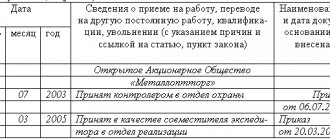It happens that an employer has disagreements not with one specific employee, but with a large group or even the entire team.
- What could be the way out of the situation in such cases?
- How to resolve such conflicts?
- What does a group of disgruntled employees have the right to, and what powers go beyond the legislative framework?
- How are such conflicts addressed and resolved?
These issues will be important for both employers and representatives of the workforce, because no one is immune from possible disagreements.
Question: There is a strike in the organization. At the same time, some workers do not participate in it, but cannot do their work due to the fact that other workers are on strike. According to the workers, the employer is to blame for the strike, since he did not fulfill the agreement that was reached during a collective labor dispute, which, in turn, became the reason for the strike. By what rules should downtime be paid? View answer
We don't argue alone
A collective labor dispute is a certain clash of interests between a group of employees (or their representatives) and the employer (his representatives), which has not yet found an acceptable resolution, regarding:
- working conditions (initially adopted or changed);
- implementation of collective agreements and agreements;
- taking into account collective opinion when approving local regulations.
Question: Should the director of a branch be authorized to work in the conciliation commission when resolving a collective labor dispute? View the court decision
The party to the conflict, called the “employer,” is interpreted as broadly as possible and includes both legal entities and individual entrepreneurs.
IMPORTANT! Since we are considering collective disputes, the staff side is always a collective subject, which means it has the right to act through representatives, just like the employer side. Representatives of any group are not interested in the outcome of the dispute, therefore, although they have the right to personify one of the opposing groups, they are not recognized as an independent party to the conflict.
Who can initiate the creation of a conciliation commission
A proposal to consider a dispute by a conciliation commission may be put forward by:
- workers;
- trade unions (their associations);
- employers;
- representatives of employers (their associations).
Employees suggest that the employer create a reconciliation commission if he does not respond to their demands within 2 days.
Trade unions may make such a proposal if there is no response from employer representatives within 3 weeks from the date they receive the demands.
Employers or their representatives initiate the organization of a commission if they do not intend to accept the conditions of employees and professional associations.
Each of the parties to the labor dispute, when initiating the creation of a commission, proposes in writing specific candidates for its members.
Collective disputes: legislative aspects
The Labor Code adopted provisions regarding labor conflicts between groups on the basis of Federal Law No. 175-FZ “On the procedure for resolving collective labor disputes” dated November 23, 1995.
Art. 398 of the Labor Code of the Russian Federation practically duplicates the provisions of the Federal Law. Changes were made only to the part concerning the strike as one of the methods of clarifying disagreements, as well as the role of the trade union body in organizing such a protest. The parties to collective labor disputes are defined more broadly in Art. 399 TK.
The Basic Law of the Russian Federation (Constitution) proclaims the right of employees to collectively express their disagreement with the employer and resolve these disputes, including through a strike (Part 5 of Article 37).
Labor law recognizes as its subject not only collective labor disputes themselves, but also the procedure for resolving them (Chapter 61 of the Labor Code of the Russian Federation).
Does a trade union have the right to participate in collective labor disputes ?
Strike as a way to resolve collective disputes
The legislation of the Russian Federation carefully elaborates the competencies and rights of bodies for resolving collective labor disputes. The Labor Code of the Russian Federation fully reflects the procedure for resolving contradictions between the parties immediately before the emergence of a labor dispute considered by the participants of the conciliation commission. This makes it possible to prevent a collective labor dispute.
Of course, the code does not call for workers to go on strike, but recognizes it as a method of resolving a dispute. The Labor Code of the Russian Federation reflects the procedure for declaring a strike, legal guarantees for participants and responsibility for the illegal organization of such an act of protest.
A strike means a period when employees of an enterprise partially or completely do not carry out their direct labor duties, seeking to resolve the existing conflict with the employer. Such an act is of an ultimatum nature in comparison with conciliation procedures. Stopping the labor process forces the employer to listen to subordinates whose rights are infringed. In fact, this is an extreme measure that employees take to defend their legitimate rights and interests.
In accordance with Article 398 of the Labor Code of the Russian Federation, only labor collectives whose demands cannot be satisfied peacefully have the right to participate in a strike.
Article 37 of the Constitution of the Russian Federation provides for a strike as an option to resolve the conflict between the employer and employees. At the same time, Article 55 of the Constitution and Article 413 of the Labor Code of the Russian Federation limit the right to strike.
Such actions are considered illegal:
- if a state of emergency or martial law is declared in the country;
- in organizations of the Armed Forces and ensuring the country's defense;
- in the structural divisions of the Ministry of Emergency Situations;
- in law enforcement agencies;
- in special and hazardous industries;
- at ambulance and emergency stations;
- in organizations that ensure the livelihoods of residents (energy supply, heating, heat supply, water supply, gas supply, aviation, rail and water transport, communications, hospitals), if the strike damages the safety, life, health of the population and the country as a whole.
A strike by workers is permissible if:
- it was preceded by conciliation procedures;
- the employer avoids participation in conciliation procedures;
- the employer ignores and does not comply with the agreements established during the labor dispute.
The employee takes voluntary participation in the strike. Persons who force participation in such an action or refusal from it bear liability, including criminal liability.
The management of the enterprise and its representatives do not have the right to organize a strike.
The decision to hold such a protest action is made at a general meeting of workers, representatives, trade unions or associations of trade union organizations. All listed bodies have the right to declare a strike if they include at least two-thirds of the total number of workers or trade union members.
To make a decision, at least half of those present at the meeting must vote for it. Part 4 of Article 410 of the Labor Code of the Russian Federation provides options if it is impossible to organize a meeting: a representative of employees has the right to make an appropriate decision, having previously collected the signatures of more than half of the team members. The meeting also elects the body that will lead the strike.
Within 10 days before the start of the action, the management of the enterprise must notify the Service, suppliers and consumers about the upcoming event and prepare conditions for maintaining the operability of production, machinery, equipment, etc.
During a strike, each party is obliged to make efforts to reach an agreement to resolve the collective dispute.

In organizations that ensure the livelihoods of the population (hospitals, electricity and gas supplies, etc.) during a protest, minimal assistance should be provided to residents. Within 5 days after the decision to hold a strike is made, the parties to a collective dispute, together with executive authorities and local governments, establish this minimum of services. If services are provided improperly during the designated period, the promotion may be considered illegal.
The result of the strike is the signing of an agreement between the parties. However, by decision of the Supreme Court of the republic, territory, regional court, courts of Moscow and St. Petersburg, autonomous region, autonomous district, it can be declared illegal. To do this, the employer or prosecutor submits an application to the judicial service, after which they notify the body leading the protest action. If the court has determined that a strike is illegal, its decision must be implemented immediately.
If the action was declared illegitimate, but employees continue it even after receiving a court decision to postpone or stop it, they will be subject to liability provided for by the Labor Code of the Russian Federation. For example, an employer can issue a warning, fine an employee, or even fire him, considering absence from work as absenteeism. Disciplinary sanctions may also be applied to the organizers of an illegal strike.
If workers participated in a protest against their own will, those who coerce them through violence or threats will face criminal penalties. According to the legislation of the Russian Federation, such actions are punishable by imprisonment for up to one year or correctional labor for up to two years.
The company retains the specialist’s job during the strike. Payment of wages is made at the discretion of the employer.
According to the Federal Law “On the Procedure for Resolving Collective Labor Disputes,” workers who are not involved in a strike, but because of it cannot perform their direct duties, must receive payment for downtime in the amount of at least two-thirds of their rate. Management may also offer subordinates who do not take part in the protest to temporarily carry out other work while maintaining their average earnings. In turn, the specialist must perform new functions in accordance with certain labor standards or tariff rates.
Possible subjects of labor collective disagreements
The cause of the conflict also determines the composition of the parties taking part in the dispute. Most often, one of the 3 grounds for a group labor dispute is relevant.
- Working conditions. A dispute over established or changed working conditions, including remuneration, can arise either within one structural unit or be common to the entire organization, including its branches and representative offices. The team has the right to argue only regarding those labor conditions that the employer has documented for all employees or certain groups. The conditions established in labor legislation and federal laws are not disputed.
- Concluded contracts and collective agreements. The employer does not have the right to accept such documents alone. A collective labor dispute is valid if the employer does not want to negotiate on the controversial provisions of a collective agreement or agreement, which prevents its conclusion, or does not comply with the recorded agreements, or violates the norms enshrined in these documents.
- Disregard for the opinion of the representative bodies of the team. This basis was not provided for by the mentioned Federal Law of 1995, but it was included in the updated article of the Labor Code. The draft local regulatory act must be agreed upon with the primary trade union organization, if one operates at the enterprise (Article 372 of the Labor Code). If an employer refuses to take into account the opinion of representatives of personnel interests when approving internal documents, this is a reason for expressing collective disagreement.
How is a conciliation commission created and what decisions can it make?
The Conciliation Commission is the first body to consider a collective labor dispute. It is created when any dispute arises. The formation of a conciliation commission is possible in an organization, at the level of an industry, a constituent entity of the Russian Federation, etc.
In accordance with Art. 401 of the Labor Code, consideration of a collective labor dispute by a conciliation commission is a mandatory stage that cannot be avoided.
The law establishes limited terms for the creation of a conciliation commission, based on the fact that, on the one hand, delaying the consideration of a collective dispute leads to an escalation of the conflict, and on the other hand, the formation of such a commission is not difficult, since no one participates in its work.
Within up to 3 working days from the date of drawing up a protocol of disagreements during collective bargaining or from the date of notification of the employer’s decision to reject all or part of the workers’ demands (as well as after 3 working days from the date of receipt of the requirements if the employer does not inform about its decision), the commission must created.
The conciliation commission is formed from representatives of the parties to a collective labor dispute on an equal basis. Parties to a collective labor dispute do not have the right to evade the creation of a conciliation commission and participation in its work.
The creation of a conciliation commission is formalized by an order of the employer and a decision of the employee representative. Such registration is necessary to clearly determine the moment of creation of the commission, which is important when calculating the deadlines established by law and providing guarantees to employees in accordance with Art. 405 TK.
A conciliation commission should also be formed in the event of a dispute arising when concluding sectoral (intersectoral), regional and other types of agreements, since it is recognized as a mandatory body for resolving a collective labor dispute. This is directly indicated by the Recommendations on the organization of work to consider a collective labor dispute by a conciliation commission, approved by the Resolution of the Ministry of Labor of Russia.
In such a situation, the decision to create a conciliation commission is made by the relevant representative of employers (association, ministry, etc.) and trade unions (associations of trade unions).
Based on general procedural requirements, we can recommend that the decision be made in writing.
The conciliation commission is a temporary body for the consideration of a collective labor dispute, created by representatives of the employer (employers) and employees. Consequently, the conciliation commission includes only representatives of the parties. In the event that a dispute arises at the stage of developing and concluding an agreement, it must be taken into account that the composition of the parties to the agreement may be wider and include representatives of state authorities or local governments. The latter are in strict accordance with Art. 402 of the Labor Code should not be members of the conciliation commission and can take part in its work only as observers, consultants, etc.
The principle of forming a conciliation commission is the equality of the parties, which in practice is manifested in the creation of a commission of an equal number of representatives of both sides.
The establishment of such a principle is fully consistent with international standards: according to paragraph 2 of ILO Recommendation No. 92 “On Voluntary Conciliation and Arbitration” (1951), each voluntary conciliation body created on a mixed basis must include an equal number of representatives from entrepreneurs and workers.
Depending on the scale of the collective labor dispute and the complexity of the demands put forward, the conciliation commission may include from 2 to 5 representatives from each party who know the problem and master the art of negotiation (clause 15 of the Recommendations on the organization of work on the consideration of a collective labor dispute by the conciliation commission).
The procedure for forming a conciliation commission is not regulated by law. In order to make it easier for the parties to the dispute to resolve some formal issues, the above Recommendations of the Russian Ministry of Labor suggest using the following scheme.
In the event that the employer rejects the employees’ demands, simultaneously with a written notification of this, the employer’s proposal for the formation of a conciliation commission, its quantitative and personal composition is sent to the employees’ representative body.
If the representative of the employer (the head of the organization) does not communicate his decision, then the representative of the employees, after 3 working days from the date of delivery of the requirements, should send to the head of the organization a proposal for the formation of a conciliation commission, its quantitative and personal composition on the part of the employees.
The representative of the employees or the employer, having received a proposal to form a conciliation commission, prepares his counterproposals on its quantitative and personal composition.
After agreeing on the quantitative composition, the formation of the conciliation commission is formalized by the relevant order (instruction) of the employer and the decision of the employee representative.
The procedure and results of consideration of a dispute by the conciliation commission are provided for in Art. 402 of the Labor Code and Recommendations of the Ministry of Labor of Russia “On the organization of work to consider a collective labor dispute by a conciliation commission.”
The Labor Code establishes a 5-day (in working days) period for consideration of a dispute by a conciliation commission. It is assumed that the members of the commission, being employees of this organization, are familiar with the essence of the dispute and the circumstances of its occurrence, therefore 5 days are enough to clarify the positions of the parties and make a decision. However, if necessary, this period may be extended. This decision is formalized in a protocol signed by representatives of the parties.
The main task of the conciliation commission is to consider the disagreements that have arisen and try to reach an agreement on controversial issues. In this case, new disagreements (not reflected in the protocol of disagreements) or new demands (not previously stated) should not be put forward.
The activities of the conciliation commission may end with the adoption of an agreed decision. In this case, the dispute is considered resolved.
The decision of the conciliation commission is made by agreement of the parties. Obviously, such an instruction from the legislator assumes that each party acts as a single whole and each member of the conciliation commission acts exclusively as a representative of the relevant party.
The decision of the conciliation commission is documented in a protocol, i.e. in writing. The obligation of written form is also enshrined in Art. 418 TK.
It is advisable to indicate in the protocol the date, subject of the dispute, representatives of the parties authorized to resolve the collective labor dispute, and the composition of the conciliation commission. It is also necessary to set out the content of the agreements reached and determine the procedure, timing and forms of execution of the decision. For example, if a dispute has arisen regarding the conclusion or amendment of a collective agreement, agreement, establishment or change of working conditions, the decision can be implemented by introducing relevant provisions into the draft of a particular act, as well as into the current act. The protocol must indicate that the dispute is considered resolved (clause 19 of the Recommendations on the organization of work on the consideration of a collective labor dispute by a conciliation commission, approved by the Ministry of Labor of Russia).
The protocol is sealed with the signatures of the members of the conciliation commission.
The specified Recommendations of the Ministry of Labor of Russia propose the form of the minutes of the meeting of the conciliation commission (Appendix No. 1 to the Recommendations).
The decision of the conciliation commission is binding on the parties. This is the rule enshrined in Art. 402 of the Labor Code, is supported by the general norm of Art. 408 of the Labor Code on the binding nature of any agreement reached by the parties during the resolution of a collective labor dispute. For failure to comply with agreements, representatives of the employer and employees are liable in accordance with Art. 416 TK.
It should be emphasized that the decision of the conciliation commission represents an agreement of the parties. It is done voluntarily. If the employer’s representative refuses to fulfill the agreement, workers have the right to go on strike (Article 409 of the Labor Code).
If during the work of the conciliation commission the parties were unable to reach an agreement on resolving a collective labor dispute or reached agreement only on some issues, a protocol of disagreements is drawn up, recording the unresolved differences and the further intentions of the parties (clause 19 of the Recommendations).
An approximate form of a protocol of disagreements is provided in Appendix No. 2 to these Recommendations.
Yu. P. Orlovsky, A. F. Nurtdinova, L. A. Chikanova
From the book: 500 topical questions on the labor code
Source: SPS Consultant
Legal boundaries of dispute resolution
The concept of “permission” is interpreted in two ways: both in the meaning of “permission” and as “resolution of disagreements,” which perfectly characterizes the position of Russian labor law on this issue.
All aspects related to collective labor disputes are quite strictly regulated in legislation - from the right of the collective to express disagreement in permitted ways to the procedure for eliminating the conflict.
The law defines:
- The procedure for presenting claims and making decisions regarding them is in Art. 399-400 Labor Code of the Russian Federation;
- procedures for reconciliation - in Art. 401-404;
- guarantees provided by opposing groups – Art. 405;
- the position of government agencies in resolving labor conflicts of this type - Art. 407;
- the order of striking as one of the methods of legitimate expression of dissatisfaction - Art. 409-414;
- ban on mass dismissal due to collective conflict – Art. 415;
- documentary support of collective conflict and the process of its resolution – art. 418.
Work of the commission
Consideration of a collective labor dispute by a conciliation commission is carried out within the following time frames:
- 3 working days from the moment of its creation - in the organization;
- 5 days - on a different level.
The chairman and secretary of the commission are elected from among the members. Meetings take place on a weekday, so participants are freed from work for the duration of the dispute.
The work procedure is not regulated by law and is approved by the conciliation commission on its own.
The commission holds meetings where it examines the documents presented by the disputants, discusses possible ways to overcome the conflict that are beneficial to both parties, and makes a decision.
Important! The employer is obliged to provide premises, office equipment and provide other conditions for the activities of the conciliation commission (Article 402 of the Labor Code of the Russian Federation).
Making demands
Which group of employees is authorized to officially declare their dissatisfaction or disagreement to the employer? If there is a trade union organization (or an association of trade unions for several organizations or divisions), then this is precisely its prerogative.
But if there is no such body or less than half of all employees working for this entrepreneur are members, a different path is needed. A general meeting of the team (conference) is convened and held, where a certain circle of representatives is elected and a list of put forward demands is formed (all by a majority vote). The employer should not interfere with the conduct of such gatherings; moreover, he is obliged to provide premises for this.
NOTE! A mandatory requirement for the validity of such a conference is a quorum of 50% or more of all representatives of the team.
The demands of the team representatives are submitted to the employer in writing, and the date of submission is recorded. A copy of this document should be sent to the regulatory government agency (Federal Service for Labor and Employment).
Employer's actions upon receipt of requirements
Having received a “note of dissatisfaction” from his team, the employer cannot ignore it. His further responsibilities:
- make a decision on the issues raised within three days;
- notify the representative body of the collective in writing about your decisions;
- if the demands were transferred to representatives of employers, then the employer has a month to make a decision and respond to the trade union.
ATTENTION! Until a response to the submitted demands is received, representatives of the collective have the right to support their demands through strikes, pickets, rallies, meetings, demonstrations (Part 8, Article 401 of the Labor Code of the Russian Federation).
Procedure for resolving collective labor disputes
The service for settlement of collective labor disputes is formed within the executive branch. Neither party to a dispute has the right to neglect conciliation procedures; administrative liability is imposed for this (Article 5.32 of the Administrative Code). These procedures are prescribed if the employer’s decisions on the demands put forward to him could not satisfy the applicants or were not made within three days.
1 step. Conciliation commission. After the employer rejects or insufficiently satisfies the team’s demands, both parties have three days to form a reconciliation commission. The employer issues a special order, and the representative body makes a decision, according to which the commission includes an equal number of representatives of each party. The law allows 5 days from the moment the order is signed to resolve the dispute. The results of the review (items required to be completed and their deadlines) are recorded.
IMPORTANT INFORMATION! If, with the help of the conciliation commission, it was not possible to reach an agreement, or at least one of the parties did not comply with the decision within the recorded period, you need to take one of the following steps - turn to a mediator or arbitration to resolve the dispute.
Step 2. Mediator. A three-day protocol of disagreements, which was the result of the work of a conciliation commission that did not fulfill the mission of reconciliation, gives the right to invite a mediator. This may be a person agreed upon by both parties, or may be recommended by the Settlement Service. The mediator is given a week to try to reconcile the parties. The result of its work can be:
- agreed decision (written);
- new protocol of disagreements.
Step 3. Arbitration. You can proceed to this step immediately after the first stage, bypassing mediation. There are three days after the first (second) protocol of disagreements to form an arbitration commission. The arbitration is compiled by all three parties to the dispute – the team, the employer and the Settlement Service. The list of arbitrators is finally approved by the Service, which also trains these specialists.
REFERENCE! Arbitration consideration is mandatory in those organizations where the law restricts or prohibits strikes (Article 406 of the Labor Code).
With a freshly drawn up arbitration, a collective labor dispute is considered within 5 days. The arbitrators develop and approve a set of recommendations for both parties, regarding which the parties sign an agreement on performance obligations in advance.
Consideration of a labor dispute in labor arbitration
As is known, the following Federal Constitutional Laws (hereinafter referred to as the FCL) concerning the functioning of the judicial system are currently in force in Russia: “On the Judicial System of the Russian Federation”, “On the Constitutional Court of the Russian Federation”, “On Arbitration Courts in the Russian Federation”, “ On military courts in the Russian Federation." It follows that in Russia the detailed procedure for the formation, activities and powers of the vertical courts of general jurisdiction from the Supreme Court of the Russian Federation to district courts, which currently operate on the basis of the general provisions of the Constitution and the relevant articles of the Federal Law “On the Judicial System of the Russian Federation” (hereinafter referred to as — Law on the Judicial System).
According to Article 26 of the Law on the Judicial System, it is possible to introduce into the Russian judicial system specialized federal courts for the consideration of civil and administrative cases, which are established by introducing amendments and additions to this Law. Their powers, the procedure for their formation and activities are also established by federal constitutional law.
From the above it follows that there is no such type of judicial body as labor arbitration in Russia, which, however, does not exclude the possibility of its creation as a specialized civil court for labor disputes of both an individual and collective nature. However, labor arbitration already exists legally and its activities are officially defined and based on regulatory legal acts.
Thus, back in 1951, the International Labor Organization adopted Recommendation No. 92 “On voluntary conciliation and arbitration.” In this recommendation, arbitration is considered as a body to which the parties to a labor conflict apply on the basis of a voluntary agreement, and whose decisions they voluntarily recognize when this body resolves their collective labor dispute.
It seems that the role of labor arbitration should be strengthened regarding conciliation procedures. Within the meaning of the current legislation (Articles 401, 402, 403 of the Labor Code), consideration of a dispute by a conciliation commission and labor arbitration is mandatory. As for the mediator, as mentioned above, the parties can invite him independently.
However, the wording of Part 1 of Article 404 of the Labor Code sounds so that it raises doubts about the need to consider a collective labor dispute by labor arbitration: “Labor arbitration is a temporary body for the consideration of a collective labor dispute, which is created if the parties to this dispute have entered into an agreement in writing on the mandatory implementation of its decisions."
What to do if the parties have not concluded such an agreement or the arbitrators have not found a mutually acceptable solution? According to the Labor Code, workers or their representatives have the right to begin organizing a strike (Article 409). In this regard, the wording of Part 1 of Article 404 of the Labor Code must be changed. In it, in our opinion, it is only advisable to leave the first part of the sentence, namely: “Labor arbitration is a temporary body for the consideration of a collective labor dispute”, the second part from the word “which” must be excluded.
In accordance with the Recommendations, labor arbitration is created by the parties to a collective labor dispute and the service for the settlement of collective labor disputes no later than three working days from the date of completion of consideration of the collective labor dispute by the conciliation commission or mediator.
The parties to a collective labor dispute may begin to create labor arbitration if no agreement is reached in the conciliation commission (part 7 of article 402 of the Labor Code); if within three working days at the stage of resolving a collective labor dispute with the participation of a mediator, the parties to this dispute have not reached an agreement regarding the candidacy of the mediator (part 1 of Article 403 of the Labor Code); in case of evasion of participation in conciliation procedures (part 1 of Article 406 of the Labor Code); if the parties to a collective labor dispute, with the participation of a mediator, have drawn up a protocol of disagreements.
As we can see, all of these cases are scattered across various articles of the Code, which makes the law in this part inconvenient for application in practice. It is no coincidence that in the Recommendations on the organization of work on the consideration of a collective labor dispute in labor arbitration, these cases are combined into a single list.
Labor arbitration considers appeals from parties to a collective labor dispute; receives the necessary documents and information relating to this dispute; informs, if necessary, state authorities and local governments about the possible social consequences of a collective labor dispute; develops recommendations on the merits of a collective labor dispute. According to the Russian Labor Code, the result of consideration of a collective labor dispute by labor arbitration is the adoption of a decision that becomes binding on the disputing parties only by mutual agreement.
Labor arbitration decisions to resolve a collective labor dispute are communicated to the parties to this dispute in writing. Activities of persons involved as labor arbitrators on the basis of Art. 405 of the Labor Code guarantees them, for the duration of their participation in resolving a collective labor dispute, exemption from their main job while maintaining their average earnings for a period of no more than three months during the year. Moreover, representatives of workers and their associations participating in the resolution of this dispute as labor arbitrators cannot be subjected to disciplinary action during the resolution of the dispute, transferred to another job or dismissed at the initiative of the employer without the prior consent of the body that authorized them to represent them.
Labor arbitrators have the right:
- request and receive from the parties the necessary documents and information on the merits of a collective labor dispute;
- invite to the meeting specialists competent in matters of this collective labor dispute;
- require the chairmen of the parties to bring the decisions of the labor arbitration to the attention of the labor collective;
- propose your own possible options for resolving a collective labor dispute;
- maintain state, official and commercial secrets when performing their functions while participating in conciliation procedures.
To illustrate the conciliation procedure and labor arbitration, the following practical example is appropriate. Thus, on September 2, 2007, the trade union body, represented by its representatives, sent a written notification of the start of negotiations to amend the existing Collective Agreement and extend its validity to the employer of the municipal enterprise “Metallist”. Amendments were attached to the notification in the form of additional demands to increase wages and bring them to the level of the industry tariff agreement, to increase the amount of financial assistance provided from the enterprise’s profits, and to provide additional official transport for transporting workers to and from work. The notification proposed forming a commission of 3 people on each side to conduct negotiations.
On September 5, 2007, the employer MP Metallist issued an order “On the creation of a commission to amend and extend the term of the collective agreement,” which was agreed upon with representatives of the trade union body. Thus, on a parity basis, a commission was created from authorized representatives to conduct negotiations. On September 6, 2007, at the organizational meeting of the commission, the rules of work of the commission were developed and agreed upon, which is reflected accordingly in the minutes.
On September 7, 2007, when considering the workers’ demands for amendments to the Collective Agreement, the employer’s representatives rejected the demands presented, and in writing they justified the refusal to satisfy the demands put forward with references to regulations. During the negotiations, the parties were unable to resolve their differences, which was reflected in the protocol of disagreements signed by the parties to the negotiations on September 8, 2007. The date of drawing up the protocol of disagreements during collective negotiations is the moment the collective labor dispute begins. After signing the protocol, the parties discussed the issue of creating a conciliation commission to consider a collective labor dispute.
On September 10, 2007, the employer of the Metalist MP issued an order “On the creation of a conciliation commission,” and the trade union body made a decision. The conciliation commission was created of 4 people, two representatives each from the employees and the employer. The conciliation commission invited the parties to the dispute to sign an agreement, according to which the recommendations of the conciliation commission would be binding on the parties. The parties did not sign such an agreement.
The conciliation commission verified compliance with the procedure for putting forward demands and the availability of powers of the parties. No violations were identified in this matter. Next, the commission examined the essence of the dispute, requested from the employer an analysis of income and expenses for the year, data on the availability of profits, the enterprise’s business plan for the year, a certificate of compliance with the clauses of the collective agreement that require material costs for the year, and other documents. Having studied the financial situation of the enterprise and its material capabilities, the commission developed recommendations according to which the employer should recognize a number of requirements and make changes to the collective agreement accordingly, since the enterprise had profits to increase the financial assistance required by employees.
The representatives of workers were asked by the commission to remove the requirement to increase wages to the size of the industry tariff agreement, since this requirement was put forward in violation of the principle of concluding collective agreements - the reality of ensuring the obligations assumed, and the industry tariff agreement does not apply to the enterprise, because Neither the employer nor the employee representatives delegated representatives to sign this agreement and did not declare their will to accede to its terms.
According to the protocol of the conciliation commission dated September 15, 2007, the parties did not agree with the measures proposed by the commission to resolve the collective labor dispute, as a result of which the dispute remained unresolved. The protocol notes that the parties to the dispute have not reached agreement on all issues; a list of issues on which agreement has not been reached is provided, indicating the position of the parties. In the operative part of Fr.
On September 15, 2007, the employer sent to the body for the settlement of collective labor disputes a copy of the workers' demands and a copy of the minutes of the meeting of the conciliation commission. Within 3 days, a labor arbitration was formed. The parties entered into a written agreement to be bound by its decisions. The labor arbitration court examined all the materials, heard the positions and arguments of the parties, analyzed the motivation for the demands and refusals to satisfy them from the point of view of the legislative framework. The arbitration held a joint meeting with representatives of the parties to the dispute and handed the parties written recommendations, according to which the dispute was resolved as follows:
- employee representatives should have lifted the requirement to increase wages to the level of the industry tariff agreement;
- the employer's representatives should have accepted all the other demands put forward as amended by the employee representatives, since the enterprise's profits made it possible to increase the amount of required financial assistance;
- the employer was recommended to provide for a gradual increase in wages and, based on financial capabilities, increase wages by 25% by the end of the year.
Taking into account the proposed recommendations, the parties to the collective labor dispute signed an agreement dated September 22, 2007 to amend the collective agreement and extend its validity by 1 year, taking into account the changes made. In this case, it seems that the role of labor arbitration is key, since the decision of labor arbitration for the parties to a collective labor dispute is mandatory by virtue of the concluded contract. As can be seen from the above example, a labor arbitrator must have the ability to argue, persuade, operate with extensive information, manage a discussion, be sensitive to changes in the mood of the parties, and accumulate everything positive that could be used to reach agreement. The status, practical work experience, as well as the personal qualities of the labor arbitrator give weight to his proposals and recommendations.
A labor arbitrator must know the current legislation, legal regulations on labor relations and the settlement of collective labor disputes. He must know the method of conducting the contractual process. It is advisable for him to be familiar with the basic principles of the work of the trade union organization, the current system for resolving individual complaints, personnel policies and other aspects of the life of the organization.
At the same time, Article 407 of the Labor Code provides for, but does not specify or materialize, a Federal executive body that carries out the functions of providing public services in the field of regulation of collective labor disputes, whose responsibilities include maintaining a database of records of labor arbitrators and organizing their training. It seems that this process requires further by-law regulation.
In addition, there are a number of issues relating to the activities of labor arbitrators, which are also not fully resolved. Thus, according to Article 408 of the Labor Code, the agreement reached by the parties to a collective labor dispute during its resolution is drawn up in writing and is binding on the parties to the dispute. Control over its implementation is exercised by the parties to the dispute.
It follows from the content of Article 416 of the Labor Code that representatives of the employer and employees guilty of failure to fulfill obligations under an agreement reached as a result of the conciliation procedure are brought to administrative responsibility in the manner established by the Code of Administrative Offenses. According to Article 5.33, failure by the employer or his representative (note the non-compliance with Article 416 of the Labor Code: there is no employee representative) to fulfill obligations under an agreement reached as a result of the conciliation procedure is subject to a fine in the amount of 20 to 40 times the minimum wage.
In addition, by its legal nature, labor arbitration is similar to an officially established arbitration court, but the question of the possibility of challenging labor arbitration decisions and enforcing its decisions when applying to the competent judicial authority has not yet received an unambiguous definition either in official acts or in legal literature. Therefore, the application to the activities of labor arbitration, for example, of the norms of Chapters 46 and 47 of the Civil Procedure Code of the Russian Federation (hereinafter referred to as the Civil Procedure Code) and the Federal Law “On Arbitration Courts in the Russian Federation” requires special official clarification.
It must be said that in the city of Moscow, representatives of trade unions, employers and the Moscow Government committed themselves to helping prevent collective labor disputes and enshrined this obligation in their tripartite agreement. In order to implement this agreement, the first labor arbitration court was created, which was subsequently registered as a legal entity in the organizational and legal form of the institution “Labor Arbitration Court for the resolution of collective labor disputes.”
The goals of its creation, in particular, were:
- legal and organizational support for the creation of a system of control mechanisms within the framework of social partnership over compliance with the rights and legitimate interests of employees in organizations of various forms of ownership;
- settlement and elimination of conflicts arising between employers and labor collectives in the field of labor relations.
Thus, from the above it follows that labor arbitration is a voluntary temporary public entity designed to legally assist employees and the employer in resolving a collective labor dispute. This entity is not a court as such - it does not have the right to take upon itself the administration of justice, its decisions are not secured by state coercion. Consideration of a collective labor dispute in labor arbitration is one of the stages of conciliation procedures. The activities of this body do not replace the activities of courts of general jurisdiction, as well as arbitration courts.
Last resort
If the employer’s side still refuses to implement the decisions made after this step, the employees have no choice but to strike . The employer will receive written notice 5 days (and his representatives a week) before the start of this action that his workers voluntarily refuse to perform their functions until the collective labor dispute is resolved.
During a strike, negotiations to resolve the conflict must continue until a mutual agreement is reached.
When does it become necessary to create a conciliation commission?
If the employer has introduced new working conditions or significantly changed the existing ones and the employees are not satisfied with this fact, a collective labor dispute arises (hereinafter referred to as the CLC).
Disagreements may arise, for example, when fulfilling the terms of a collective agreement, or if the opinion of representatives of the workforce was not taken into account when creating internal labor documents. If contradictions arise, employees put forward their written demands and send them to the manager in accordance with Art. 399 Labor Code of the Russian Federation.
If the employer ignored the employees’ demands or refused to satisfy them in whole or in part, conciliation procedures are carried out.
A conciliation commission is considered an obligatory step in settling the dispute. It is created temporarily at the enterprise in order to find a mutually beneficial solution to the problem that has arisen.








